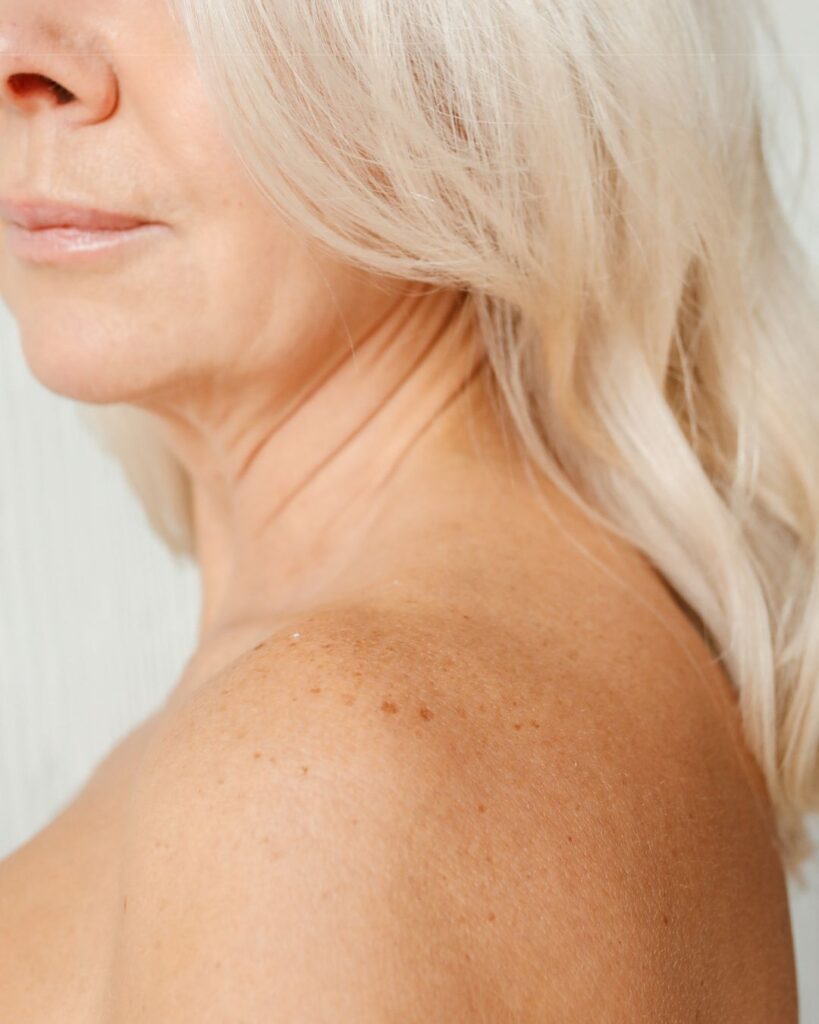As a menopause health coach, I often hear women ask why nighttime itching during menopause feels so intense and isolating. This blog explores the real, biological reasons behind nighttime skin discomfort in midlife, and offers practical support. If you’ve been tossing, scratching, and second-guessing yourself, let’s talk about why it happens and how to soothe it.
The Itch That Wakes You Up

If you’ve ever jolted awake, clawing at your arms, legs, or scalp, wondering if you’re losing your mind, take a breath. Menopause itching at night is real. It’s not just dry skin. It’s not just stress. And it’s definitely not just you.
Hormonal shifts during perimenopause and menopause can trigger a cascade of skin changes.
- Estrogen plays a key role in maintaining skin hydration, elasticity, and barrier function.
- When estrogen drops, your skin becomes more vulnerable to dryness, inflammation, and sensitivity.
Add nighttime temperature fluctuations, sweat, and stress, and you’ve got the perfect storm for itching that seems to peak after dark.
Why Nighttime Itching Feels So Personal
There’s something about menopause itching at night that feels especially cruel. It interrupts sleep, amplifies anxiety, and often shows up in places you can’t easily soothe, such as your back, scalp, or inner thighs. And because it’s not widely talked about, many ladies feel embarrassed or confused.
But here’s the truth: midlife skin changes are common. So are histamine surges, cortisol spikes, and nervous system shifts that make nighttime discomfort more intense.
What You Can Do (Tonight and Long-Term)
Let’s get practical. If menopause itching at night is disrupting your sleep or peace of mind, here are a few, gentle, science-backed strategies:
- Choose fragrance-free, pH balanced moisturizers with ceramides or colloidal oatmeal. Start with a clean, minimalist skincare line – one that’s free from synthetic fragrance, common irritants, and unnecessary additives. Look for dermatologist-tested formulas that prioritize calm, hydration, and barrier support.
- Keep your bedroom cool and your sheets breathable. Think cotton or bamboo.
- Avoid alcohol and sugar close to bedtime, which can spike histamine and cortisol.
- Try magnesium-rich foods or supplements to support nervous system regulation.
- Consider tracking your symptoms to identify patterns linked to diet, stress, or cycle shifts.
When to Seek Medical Support
Persistent or severe itching may signal something beyond hormonal shifts, like thyroid imbalances, liver function changes, or dermatological conditions. If your symptoms worsen or feel unmanageable, it’s worth checking in with a healthcare provider who understands midlife physiology.
FAQs
Is menopause itching at night a common symptom?
Yes, it’s surprisingly common. Many ladies experience skin discomfort, dryness, or prickly sensations during perimenopause and menopause, especially after dark. It’s often underreported because it feels personal or hard to explain.
What areas of the body are most affected?
Itching can show up anywhere, but common spots include the scalp, chest, back, arms, and inner thighs. These areas are sensitive to hormonal skin changes and may react more strongly to heat, sweat, or friction at night.
Should I talk to a menopause health coach?
If itching is persistent, severe, or affecting your quality of life, it’s worth seeking support. A menopause health coach can help you track patterns, explore root causes, and build a personalized plan. In some cases, medical evaluation may be needed to rule out thyroid or liver issues.
You Deserve Relief

Itching at night during menopause isn’t just a skin issue. It’s a quality-of-life issue. It affects sleep, mood, intimacy, and confidence. And it deserves real attention.
If you’re looking for personalized support, guidance, and science-backed strategies to help balance your hormones, I’m here. As a menopause health coach, I help ladies reclaim comfort and connection with their bodies, starting with the symptoms that feel hardest to name.
Book a free call and let’s build a plan that honors your body’s changing needs.
Let’s make nighttime feel comfortable again.
+ show Comments
- Hide Comments
add a comment